Earth Hour
Switch off and connect with nature – Saturday 28 March 2026 at 8.30pm.

Earth hour countdown

What is Earth Hour and why is it so important?
Every March, millions of people around the world come together for one hour to show they care about the future of our planet. From iconic landmarks like Big Ben and the Sydney Opera House to cities across the globe, the lights go out in a stunning display of solidarity for our natural world.
Why – because our world needs our help. Nature gives us so much, from the food we eat to the air we breathe; it keeps us healthy and thriving. WWF’s Earth Hour is the perfect moment to switch off and give back to the planet. Because when we restore nature, it restores us.
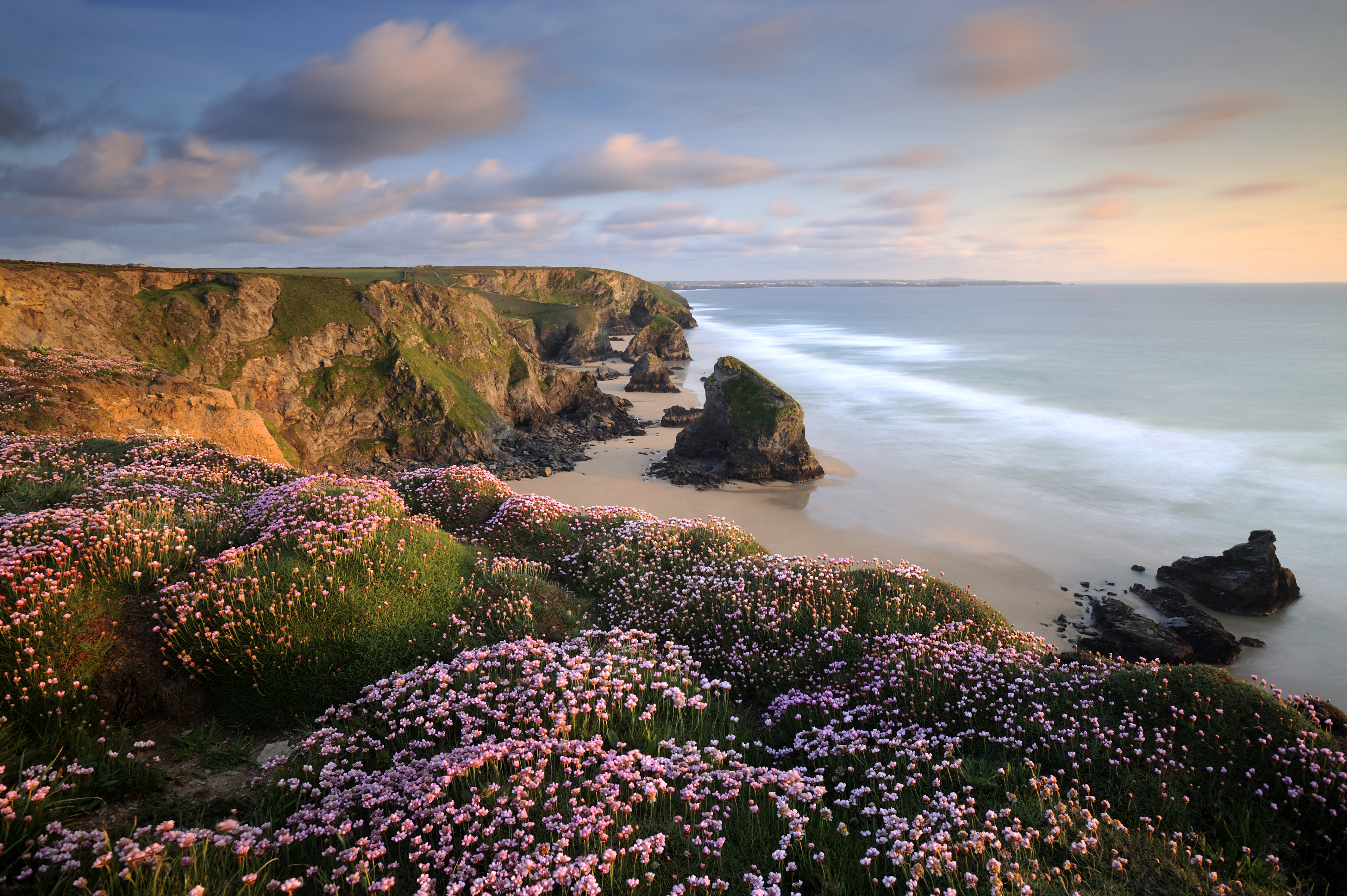

Get your free wellbeing guide
Get your free wellbeing guide
Earth Hour is the perfect moment to plan how to get your daily dose of nature. Spending time connecting with nature is brilliant for our mental wellbeing. It can reduce stress and anxiety, lift our mood and help our minds rest. Download your free nature guide to start your daily dose journey and enjoy an exclusive 15% discount across our shop.

Earth Hour on the night activities
Earth Hour isn’t just about turning off the lights – it's also a great time to mentally “switch off” and take a moment to relax and connect with nature. Whether on your own or with loved ones, we’ve got plenty of activities to help you celebrate Earth Hour with us!
-
 © Mongkolchon Akesin / Shutterstock / WWF-UK
© Mongkolchon Akesin / Shutterstock / WWF-UKMore Close Switch off your lights
This is where Earth Hour all began. Switch off your lights to show your support for the natural world. Take an hour to go dark – use the time to unwind alone or with loved ones. Want to make it even more meaningful? Go the extra step and truly ‘switch off’ by stepping away from your screens and putting your phone on ‘Do Not Disturb’.
-
 © AleksandarNakic
© AleksandarNakicMore Close Prepare a meal by candlelight
Embrace the charm of a simpler time by preparing a meal by candlelight. Gather your ingredients and whip up a delicious, no-cook dish while enjoying the cosy, flickering glow of candles. Not only does this save energy, but it also sets a relaxed, intimate vibe - perfect for bonding with loved ones. You could even prepare an easy, no-cook pudding to round off your meal.
Discover recipes -
 © Jared Rice / Unsplash
© Jared Rice / UnsplashMore Close Take a moment to switch off
Switching off this Earth Hour is also an opportunity to reconnect with yourself. Take the time to reflect through mindful journalling or meditation or revisit your New Year's resolutions. Create a peaceful, electricity-free environment and practice yoga, allowing your body to stretch, your breath to flow, and your mind to clear. Whether you're a seasoned yogi or just starting out, this is the perfect moment to unwind, find tranquillity, and nurture both your well-being and the Earth.
-
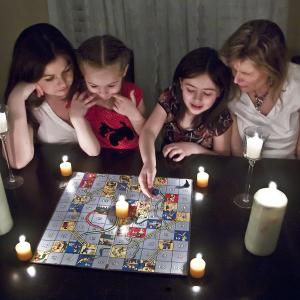 © Bill IVY / Ivy Images / WWF-Canada
© Bill IVY / Ivy Images / WWF-CanadaMore Close A candlelit games night
Turn off the screens and gather round for a fun-filled evening of board games by candlelight. Whether you're diving into a classic round of Monopoly or strategising in Settlers of Catan, the soft glow of candles adds a magical touch, turning your game night into a memorable experience for everyone.
-

More Close Tales by twilight
Gather your family or friends and share stories by candlelight. Whether it's spooky ghost tales, personal anecdotes, or stories from your favourite books, storytelling is a great way to connect and have fun without using electricity. And, of course, the best stories are those that celebrate nature and wildlife.
/
Listen to our Spotify playlists
We have a selection of playlists that have been created in association with Music Declares Emergency for WWF's Earth Hour you to listen to on the night.
-
 © WWF-UK
© WWF-UKMore Close The Maccabees
For Earth Hour 2025, we've teamed up with Music Declares Emergency for an artist-curated NO MUSIC ON A DEAD PLANET playlist. Curated by The Maccabees, it features Neil Young, Marvin Gaye, Joni Mitchell, and more. This Earth Hour light a candle, switch off your lights, and enjoy the music.
Listen to the playlist -
 © WWF-UK
© WWF-UKMore Close Guy Garvey (Elbow)
For Earth Hour 2025, we've teamed up with Music Declares Emergency for an artist-curated NO MUSIC ON A DEAD PLANET playlist. Curated by Guy Garvey, it features Nina Simone, Kurt Vile, Roberta Flack, and more. This Earth Hour light a candle, switch off your lights, and enjoy the music.
Listen to the playlist -
 © WWF-UK
© WWF-UKMore Close Dougie Poynter
For Earth Hour 2025, we've teamed up with Music Declares Emergency for an artist-curated NO MUSIC ON A DEAD PLANET playlist. Curated by Dougie Poynter from McFly it features Original Koffee, Hans Zimmer, John Williams & more. This Earth Hour light a candle, switch off your lights, and enjoy the music.
Listen to the playlist -
 © WWF-UK
© WWF-UKMore Close Hot Wax
For Earth Hour 2025, we've teamed up with Music Declares Emergency for an artist-curated NO MUSIC ON A DEAD PLANET playlist. Curated by How Wax it features Stereolab, Marvin Gaye, Blur & more. This Earth Hour light a candle, switch off your lights, and enjoy the music.
Listen to the playlist -
 © WWF-UK
© WWF-UKMore Close Iwan Rheon
For Earth Hour 2025, we've teamed up with Music Declares Emergency for an artist-curated NO MUSIC ON A DEAD PLANET playlist. Curated by Iwan Rheon, it features Eva Cassidy, The Beatles, Aled Rheon & more. This Earth Hour light a candle, switch off your lights, and enjoy the music.
Listen to the playlist -
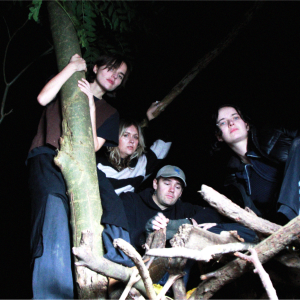 © WWF-UK
© WWF-UKMore Close Goat Girl
For Earth Hour 2025, we've teamed up with Music Declares Emergency for an artist-curated NO MUSIC ON A DEAD PLANET playlist. Curated by Goat Girl, it features John Cage, Anna B Savage, ANOHNI & more. This Earth Hour light a candle, switch off your lights, and enjoy the music.
Listen to the playlist -
 © WWF-UK
© WWF-UKMore Close Lou Hayter
For Earth Hour 2025, we've teamed up with Music Declares Emergency for an artist-curated NO MUSIC ON A DEAD PLANET playlist. Curated by Lou Hayter, it features Mort Garson, Talking Heads and Stevie Wonder. This Earth Hour light a candle, switch off your lights, and enjoy the music.
Listen to the playlist -
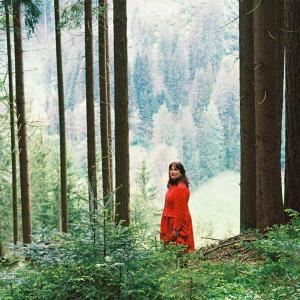 © Seren Cary’s
© Seren Cary’sMore Close Katy J Pearson
For Earth Hour 2025, we've teamed up with Music Declares Emergency for an artist-curated NO MUSIC ON A DEAD PLANET playlist. Curated by Katy J Pearson, it features Okay Kaya, Beach House, Enya and more. This Earth Hour light a candle, switch off your lights, and enjoy the music.
Listen to the playlist
/
A dose of nature
Get the ultimate chill out experience during the hour by immersing yourself in our full daily dose of nature YouTube series.
You can start with the Borneo rainforest.

Useful Resources
-

Employee engagement toolkit
Download now -
 © Peter Chadwick / WWF
© Peter Chadwick / WWFEarth Day 22 April
Celebrate Earth Day -
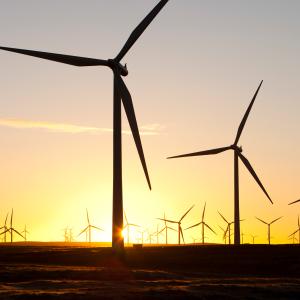
Scotland resources
Support Earth Hour in Scotland
/
Show your support
If you would like to support WWF's Earth Hour and use our official WWF Earth Hour Supporter logo, please contact earthhour@wwf.org.uk